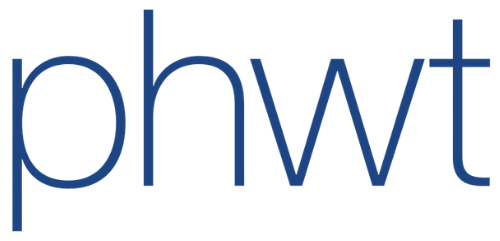Erasmus Learning Agreement
Of course you want to make sure that the courses you take abroad are also recognized at your home university.
This is exactly what the Learning Agreement is for.
This important document ensures that your international coursework can be easily integrated into your studies.
This allows you to concentrate fully on your adventure abroad without having to worry about the recognition of your achievements.
What is a Learning Agreement?
A Learning Agreement is an official document that specifies the courses and modules you will complete during your studies abroad.
It is concluded between you, your home university and the host university.
The Learning Agreement contains detailed information about the courses you will attend abroad.
Thanks to the Learning Agreement, all parties involved – you, your home university and the host university – know exactly which courses you will be taking and how these will be integrated into your studies.
It creates transparency and predictability, avoids misunderstandings and ensures that your achievements abroad can be seamlessly integrated into your studies.
The Learning Agreement is a central component of the Erasmus+ program and other international exchange programs.
It helps you to plan your studies abroad in a structured and targeted manner and ensures that you don’t lose any valuable study time.
This allows you to concentrate fully on learning and experiencing a new environment.
Why is a Learning Agreement important?
Without this document, it could be difficult to integrate the credits earned abroad into your studies, which could lead to delays and additional courses.
It clearly defines which courses you will take and how they will be integrated into your studies, thus avoiding misunderstandings and bureaucratic hurdles.
The prior agreement of all parties involved ensures that there are no surprises when it comes to the recognition of your achievements.
The Learning Agreement is a central component of programs such as Erasmus+, which aim to promote the mobility and international exchange of students.
Components of a Learning Agreement
Here are the essential elements that should not be missing from your Learning Agreement:
- Course name and course number: Each course you will take abroad should be named and numbered exactly.
This detailed information helps to avoid misunderstandings and ensures that the courses can be clearly identified. - Number of ECTS points: The European Credit Transfer and Accumulation System (ECTS) points are decisive for the recognition of your academic achievements at your home university.
Each course is awarded a certain number of ECTS points, which show how much work is involved. - Course objectives and content: An accurate description of the objectives and content of each course is important to ensure that it meets the requirements of your home university.
This information shows what you will learn in the course and how it fits into your study plan. - Period and duration of the courses: Precise information about when and for how long the courses take place is also important.
This information will help you and your home university to plan the timing of your semester abroad and ensure that there are no overlaps with other commitments. - Signatures of the parties involved
This includes yourself, your academic supervisor at your home university and a representative of the host university.
These signatures confirm that all parties agree to the agreements.
A well-completed learning agreement provides a clear structure and orientation that will help you to make your semester abroad successful and smooth.
This allows you to concentrate fully on your new experiences and learning in a new environment.
The process and the creation of a Learning Agreement
The process of creating a Learning Agreement is divided into several steps:
- Course selection: First, select the courses you would like to take abroad.
Make sure that these courses match your degree program and your academic goals. - Coordination with your home university: Discuss your course selection with your academic advisor or student advisor at your home university.
They will help you to ensure that the courses meet the requirements of your university and can be recognized. - Approval by the host university: Once you have received approval from your home university, you forward the Learning Agreement to the host university.
They will check whether you are admitted to the selected courses. - Signatures of the parties: Once all parties – you, your home university and the host university – have approved the course selection, everyone involved must sign the Learning Agreement to make it official.
- Submission and storage: Submit the signed Learning Agreement to the relevant authorities and keep a copy for your own records.
Tips for the successful creation of a Learning Agreement
- Early planning: Start planning and selecting courses early.
The more time you have to select and coordinate courses, the lower the risk of problems or delays. - Communication: Keep in regular contact with those responsible at your home and host university.
Open and continuous communication helps to avoid misunderstandings and keep the process running smoothly. - Documentation: Ensure that all courses and their recognition are clearly documented.
Keep detailed records of the course descriptions, ECTS points and the approval of the parties involved.
Thorough documentation makes it easier to have your achievements recognized later.
Frequently asked questions about the Learning Agreement
What deadlines do I have to observe for the Learning Agreement?
Each university has its own deadlines and it is important to adhere to them to avoid delays or problems with the recognition of your academic achievements. The documents often have to be submitted several months before the start of the semester abroad.
What happens if my study plan changes?
How does the recognition of benefits work?
Your studies at the PHWT
Are you looking for a degree program that provides you with optimal support and encouragement? At the Private University of Applied Sciences for Business and Technology (PHWT ), we attach great importance to supporting you throughout your entire educational journey and ensuring that your time at university prepares you ideally for your career and personal goals.
If you are still unsure whether studying at PHWT is right for you, we offer two special orientation programs: The Niedersachsen Technikum, a six-month program especially for women, gives you an insight into technical professions. The MINT UNI is aimed at pupils who would like to experience the MINT subjects at first hand during the summer vacation through exciting lectures and practical exercises.
PHWT also offers you the opportunity to spend a semester abroad and gain international experience. Our university holds the Erasmus Charter for Higher Education and actively applies to participate in the Erasmus mobility program for students and staff.




